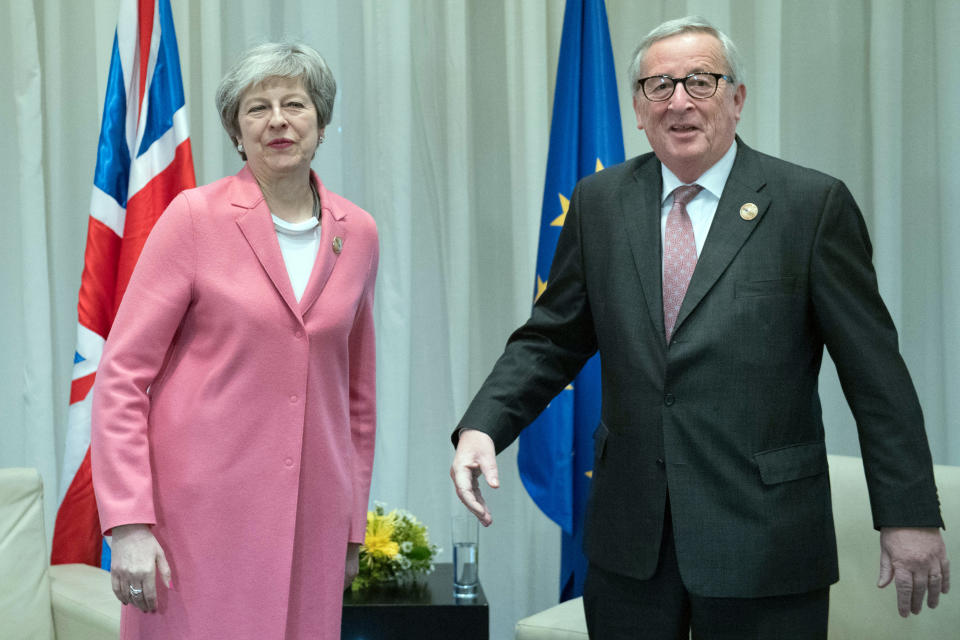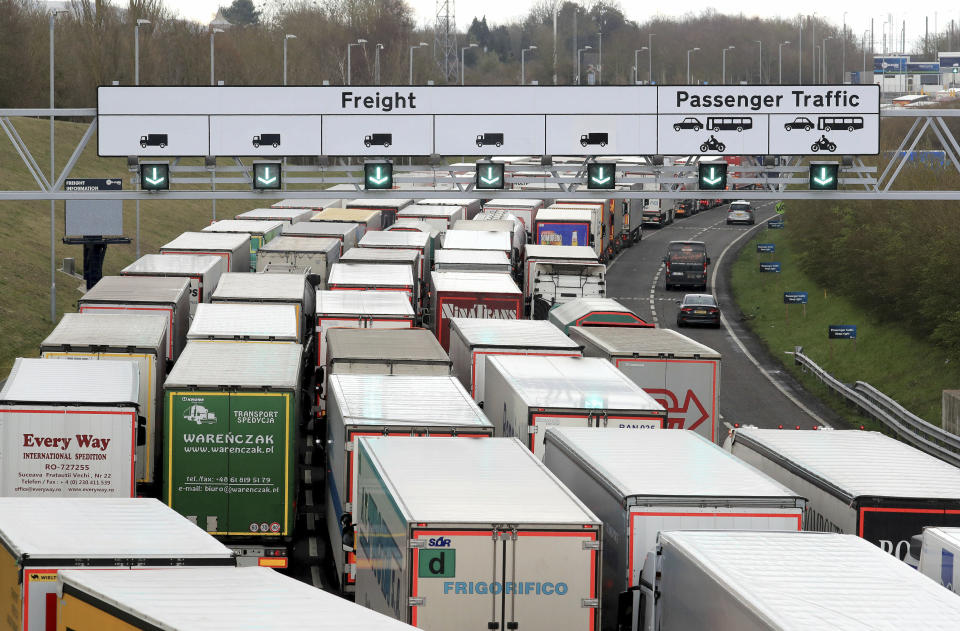How Boris Johnson's pledges to 'unleash' Britain's economy stack up

Boris Johnson reeled off a string of policies to “unleash” Britain’s economy in his first speech as UK prime minister outside Downing Street, vowing to support firms, homebuyers, workers, and the “left-behind.”
The former London mayor struck an upbeat tone on Wednesday as he vowed to deliver Brexit on 31 October and prove wrong the “critics, doubters, doomsters, and the gloomsters.”
But warning signs have been growing in recent months about the health of the UK economy, from dire figures on manufacturing production and poor productivity to studies suggesting Britain is already in recession.
Many experts and businesses are also sceptical about some of the policies floated by Johnson on the campaign trail. The resignation of several ministers may reflect their alarm over his hard Brexit stance.
‘Confidence to invest’ for business
Johnson pledged to give business the “confidence to invest,” which could give a significant boost to UK growth if successful as many firms have been holding back investment.
Britain has suffered from poor productivity and wage growth in recent years, but the country also seen record employment and a particular boom in the self-employed.
Some economists put the current state of the economy partly down to firms hiring more short-term, freelance workers as a safer, cheaper bet than expensive, riskier long-term investments in equipment or training.
READ MORE: ‘Brexit is like Boris Johnson’s hair’: the ultimate guide to Brexit comparisons
But the main reason large numbers of businesses have been delaying investment is more than three years of enormous uncertainty about the impact of Brexit on the economy since the referendum.
Firms are desperate both for clarity about Britain’s future and for a Brexit deal that ensures current arrangements allowing “frictionless” trade and migration within the EU can continue as normal.
A Brexit deal with the EU

So Johnson needs a soft Brexit deal with a smooth transition to satisfy business.
He said on Wednesday he was “convinced” he could reach a deal that not only ditched the Irish backstop plan hated by Conservative MPs, but also avoided a deeply controversial return to checkpoints on the Northern Irish border with Ireland.
EU figures will see such talk as wishful thinking and another example of Johnson’s self-described “have our cake and eat it” mindset, and have been steadfast in insisting on a backstop to protect member state Ireland.
If Johnson and the EU both refuse to compromise, a deal seems unlikely. Even if he can reach a deal, he may alienate his party and struggle to get enough MPs behind the plan to get it through parliament, just as Theresa May struggled.
Britain ready for a no-deal Brexit
The limited room for a breakthrough on securing a deal and Johnson’s insistence Britain will leave on 31 October — “no ifs, not buts” — mean the chances are growing fast of a no-deal Brexit.
Johnson pledged to “accelerate” preparations for such a rupture, saying UK ports, banks, factories, business, food, farming, and hospital sectors “will be ready.”
But countless businesses and experts have warned leaving without a deal will be catastrophic. “Frankly you can’t mitigate those risks away,” a former HMRC chief said recently about disruption to trade at the Channel and the Northern Irish border.
READ MORE: Ex-HMRC border chief: No-deal Brexit ‘like preparing for crisis’
Britain’s budget watchdog warned this month a no-deal Brexit would plunge Britain into recession, with spiralling unemployment, import prices, government debt, and trade barriers while real incomes, foreign investment, and house prices tumble. That could spell disaster for the “left-behind” towns Johnson said he wanted to support.
Many organisations are also unable to stockpile more than a limited amount of goods — particularly fresh food, medicines, and parts for “just-in-time” production lines — on the scale that could be necessary if no deal means immediate border checks and disruption.
Surveys show many firms are struggling or deciding not to prepare given the huge uncertainty over what will actually happen, with trade bodies regularly warning they need clearer guidance and support from government.

Tax cuts for high earners
Johnson pledged to take many high earners out of tax by raising the higher-rate threshold to £80,000.
The move could prove popular with better-off voters, and supporters suggest it could incentivise business growth.
But even Johnson’s Conservative rival candidates suggested it was an unfair handout to the rich when lower-paid workers should take priority, after a decade of poor wage growth and heavy cuts to public services.
Stamp duty cuts and more young homeowners
Johnson promised to give “millions of young people the chance to own their own homes.”
This could reflect his reported plans to scrap stamp duty for homes under £500,000 in a no-deal emergency budget, along with a controversial “bonfire” of regulation.
The property industry broadly welcomed these plans and said they could stimulate a revival in the market, but some fear such reforms will only overheat house prices and make them more expensive for first-time buyers.
Official forecasts also suggest a no-deal Brexit could severely damage the housing market, wiping out the benefits of tax cuts by battering lending and confidence.
READ MORE: London property market suffers worst crash in a decade

A higher living wage
Johnson vowed to increase the legal minimum wage in Britain, which may be welcomed by many lower-paid workers and could help reduce growing levels of in-work poverty over the past decade.
But he has conspicuously failed to say by how much, meaning workers could actually receive an increase below inflation if Johnson feels less generous in office.
Many businesses run on tight margins. Cash-strapped public sector bodies and social care providers reliant on low-paid staff may also wince at higher costs.
Major railway spending
Johnson pledged outside Number 10 to invest in rail infrastructure.
He was a fan of high-profile spending projects as London mayor, suggesting ambitious major projects may take priority over less eye-catching issues like fixing Britain’s potholes, saving bus services, or improving existing commuter rail lines across the north.
READ MORE: All the bad news the government is sneaking out as all eyes focus on new PM
But he recently admitted to “anxieties” about one of Britain’s biggest rail projects, suggesting he would hold a review of HS2.
He supports Crossrail in London, but that may come under pressure too as costs escalate, with an update on its finances sneaked out Wednesday just as he took power.

